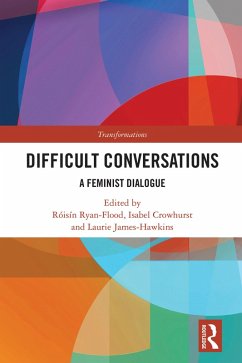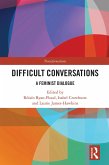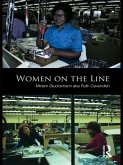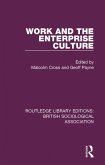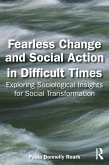Difficult Conversations (eBook, ePUB)
A Feminist Dialogue
Redaktion: Ryan-Flood, Róisín; James-Hawkins, Laurie; Crowhurst, Isabel
41,95 €
41,95 €
inkl. MwSt.
Sofort per Download lieferbar

21 °P sammeln
41,95 €
Als Download kaufen

41,95 €
inkl. MwSt.
Sofort per Download lieferbar

21 °P sammeln
Jetzt verschenken
Alle Infos zum eBook verschenken
41,95 €
inkl. MwSt.
Sofort per Download lieferbar
Alle Infos zum eBook verschenken

21 °P sammeln
Difficult Conversations (eBook, ePUB)
A Feminist Dialogue
Redaktion: Ryan-Flood, Róisín; James-Hawkins, Laurie; Crowhurst, Isabel
- Format: ePub
- Merkliste
- Auf die Merkliste
- Bewerten Bewerten
- Teilen
- Produkt teilen
- Produkterinnerung
- Produkterinnerung

Bitte loggen Sie sich zunächst in Ihr Kundenkonto ein oder registrieren Sie sich bei
bücher.de, um das eBook-Abo tolino select nutzen zu können.
Hier können Sie sich einloggen
Hier können Sie sich einloggen
Sie sind bereits eingeloggt. Klicken Sie auf 2. tolino select Abo, um fortzufahren.

Bitte loggen Sie sich zunächst in Ihr Kundenkonto ein oder registrieren Sie sich bei bücher.de, um das eBook-Abo tolino select nutzen zu können.
This book explores 'difficult conversations' in feminist theory as an integral part of social and theoretical transformations.
- Geräte: eReader
- mit Kopierschutz
- eBook Hilfe
Andere Kunden interessierten sich auch für
![Difficult Conversations (eBook, PDF) Difficult Conversations (eBook, PDF)]() Difficult Conversations (eBook, PDF)41,95 €
Difficult Conversations (eBook, PDF)41,95 €![Change and Disruption (eBook, ePUB) Change and Disruption (eBook, ePUB)]() Roberta GarnerChange and Disruption (eBook, ePUB)37,95 €
Roberta GarnerChange and Disruption (eBook, ePUB)37,95 €![Women on the Line (eBook, ePUB) Women on the Line (eBook, ePUB)]() Miriam Glucksmann Aka Ruth CavendishWomen on the Line (eBook, ePUB)45,95 €
Miriam Glucksmann Aka Ruth CavendishWomen on the Line (eBook, ePUB)45,95 €![Perverse Memory and the Holocaust (eBook, ePUB) Perverse Memory and the Holocaust (eBook, ePUB)]() Jan BorowiczPerverse Memory and the Holocaust (eBook, ePUB)44,95 €
Jan BorowiczPerverse Memory and the Holocaust (eBook, ePUB)44,95 €![Critical Theory and the Classical World (eBook, ePUB) Critical Theory and the Classical World (eBook, ePUB)]() Martyn HudsonCritical Theory and the Classical World (eBook, ePUB)45,95 €
Martyn HudsonCritical Theory and the Classical World (eBook, ePUB)45,95 €![Work and the Enterprise Culture (eBook, ePUB) Work and the Enterprise Culture (eBook, ePUB)]() Work and the Enterprise Culture (eBook, ePUB)34,95 €
Work and the Enterprise Culture (eBook, ePUB)34,95 €![Fearless Change and Social Action in Difficult Times (eBook, ePUB) Fearless Change and Social Action in Difficult Times (eBook, ePUB)]() Paula Donnelly RoarkFearless Change and Social Action in Difficult Times (eBook, ePUB)35,95 €
Paula Donnelly RoarkFearless Change and Social Action in Difficult Times (eBook, ePUB)35,95 €-
-
-
This book explores 'difficult conversations' in feminist theory as an integral part of social and theoretical transformations.
Hinweis: Dieser Artikel kann nur an eine deutsche Lieferadresse ausgeliefert werden.
Dieser Download kann aus rechtlichen Gründen nur mit Rechnungsadresse in A, B, BG, CY, CZ, D, DK, EW, E, FIN, F, GR, HR, H, IRL, I, LT, L, LR, M, NL, PL, P, R, S, SLO, SK ausgeliefert werden.
Hinweis: Dieser Artikel kann nur an eine deutsche Lieferadresse ausgeliefert werden.
Produktdetails
- Produktdetails
- Verlag: Taylor & Francis eBooks
- Seitenzahl: 278
- Erscheinungstermin: 1. Februar 2023
- Englisch
- ISBN-13: 9781000858600
- Artikelnr.: 67486715
- Verlag: Taylor & Francis eBooks
- Seitenzahl: 278
- Erscheinungstermin: 1. Februar 2023
- Englisch
- ISBN-13: 9781000858600
- Artikelnr.: 67486715
- Herstellerkennzeichnung Die Herstellerinformationen sind derzeit nicht verfügbar.
Róisín Ryan-Flood is Professor of Sociology and Director of the Centre for Intimate and Sexual Citizenship (CISC) at the University of Essex. Her research interests include gender, sexuality, kinship, digital intimacies and feminist epistemology. She is the author of Lesbian Motherhood: Gender, Sexuality and Citizenship (2009), and co-editor of Secrecy and Silence in the Research Process (2010), Transnationalising Reproduction: Third Party Conception in a Globalised World (2018), and Queering Methodology: Lessons and Dilemmas from Lesbian Lives (2022). She is also co-editor of the journal Sexualities: Studies in Culture and Society. Isabel Crowhurst is Reader in Sociology at the University of Essex. Her work explores the construction of social norms around sexual practices and intimate lives. Her recent books include The Tenacity of Couple Norm (with Sasha Roseneil, Tone Hellesund, Ana Cristina Santos and Mariya Stoilova), and Third Sector Organizations in Sex Work and Prostitution (with Susan Dewey and Chimaraoke Izugbara). Laurie James-Hawkins is Senior Lecturer in Sociology and Deputy Director of the Centre for Intimate and Sexual Citizenship (CISC) at the University of Essex. She is a sociologist of health and gender, and her research interests include reproductive health, contraception, abortion, gender and sexuality among emerging adults. She has published widely on these topics. In recent years Dr. James-Hawkins has been studying sexual consent among university student populations.
Introduction
SECTION 1: DIFFICULT KNOWLEDGE
SECTION 1: DIFFICULT KNOWLEDGE
1. The gender wars and difficult conversations about trans: An interview
with Meg-John Barker
2. Facing uneasiness in feminist research: the case of female genital
cutting
3. Feminism and race in academia: An interview with Sandya Hewamanne
4. But you're not defending sugar, are you?
SECTION 2: GENDER, POWER AND INTIMACY
5. Difficult research effects/affects: an
intersectional-discursive-material-affective look at racialised
sexualisation in public advertising
6. Calling out and piling on: deliberation and difficult conversations in
feminist digital social space
7. Interviewing with intimacy: negotiating vulnerability and trust in
difficult conversations
8. Coexisting with uncomfortable reflexivity: feminist fieldwork abroad
during the pandemic
SECTION 3: GENDER, SEXUALITY AND EMBODIMENT
9. Sexing in the cities: sex, desire and sexual health of black township
women who love women
10. Researching sex: gender, taboos and revealing the intimate
11. Building a community of trust: participatory applied theatre workshop
techniques for difficult conversations on consent
12. Women's experiences of marital rape in Turkey: ethics, voice and
difficult conversations
SECTION 4: BOUNDED KNOWLEDGE
13. Lost for words: difficult conversations about ethics, reflexivity and
research governance
14. Gender studies, academic purity and political relevance
15. The feminist classroom in a neoliberal university
16. Focus groups and the 'insider researcher'; difficult conversations and
intersectional complexities
17. Queering the academy
SECTION 1: DIFFICULT KNOWLEDGE
SECTION 1: DIFFICULT KNOWLEDGE
1. The gender wars and difficult conversations about trans: An interview
with Meg-John Barker
2. Facing uneasiness in feminist research: the case of female genital
cutting
3. Feminism and race in academia: An interview with Sandya Hewamanne
4. But you're not defending sugar, are you?
SECTION 2: GENDER, POWER AND INTIMACY
5. Difficult research effects/affects: an
intersectional-discursive-material-affective look at racialised
sexualisation in public advertising
6. Calling out and piling on: deliberation and difficult conversations in
feminist digital social space
7. Interviewing with intimacy: negotiating vulnerability and trust in
difficult conversations
8. Coexisting with uncomfortable reflexivity: feminist fieldwork abroad
during the pandemic
SECTION 3: GENDER, SEXUALITY AND EMBODIMENT
9. Sexing in the cities: sex, desire and sexual health of black township
women who love women
10. Researching sex: gender, taboos and revealing the intimate
11. Building a community of trust: participatory applied theatre workshop
techniques for difficult conversations on consent
12. Women's experiences of marital rape in Turkey: ethics, voice and
difficult conversations
SECTION 4: BOUNDED KNOWLEDGE
13. Lost for words: difficult conversations about ethics, reflexivity and
research governance
14. Gender studies, academic purity and political relevance
15. The feminist classroom in a neoliberal university
16. Focus groups and the 'insider researcher'; difficult conversations and
intersectional complexities
17. Queering the academy
Introduction
SECTION 1: DIFFICULT KNOWLEDGE
SECTION 1: DIFFICULT KNOWLEDGE
1. The gender wars and difficult conversations about trans: An interview
with Meg-John Barker
2. Facing uneasiness in feminist research: the case of female genital
cutting
3. Feminism and race in academia: An interview with Sandya Hewamanne
4. But you're not defending sugar, are you?
SECTION 2: GENDER, POWER AND INTIMACY
5. Difficult research effects/affects: an
intersectional-discursive-material-affective look at racialised
sexualisation in public advertising
6. Calling out and piling on: deliberation and difficult conversations in
feminist digital social space
7. Interviewing with intimacy: negotiating vulnerability and trust in
difficult conversations
8. Coexisting with uncomfortable reflexivity: feminist fieldwork abroad
during the pandemic
SECTION 3: GENDER, SEXUALITY AND EMBODIMENT
9. Sexing in the cities: sex, desire and sexual health of black township
women who love women
10. Researching sex: gender, taboos and revealing the intimate
11. Building a community of trust: participatory applied theatre workshop
techniques for difficult conversations on consent
12. Women's experiences of marital rape in Turkey: ethics, voice and
difficult conversations
SECTION 4: BOUNDED KNOWLEDGE
13. Lost for words: difficult conversations about ethics, reflexivity and
research governance
14. Gender studies, academic purity and political relevance
15. The feminist classroom in a neoliberal university
16. Focus groups and the 'insider researcher'; difficult conversations and
intersectional complexities
17. Queering the academy
SECTION 1: DIFFICULT KNOWLEDGE
SECTION 1: DIFFICULT KNOWLEDGE
1. The gender wars and difficult conversations about trans: An interview
with Meg-John Barker
2. Facing uneasiness in feminist research: the case of female genital
cutting
3. Feminism and race in academia: An interview with Sandya Hewamanne
4. But you're not defending sugar, are you?
SECTION 2: GENDER, POWER AND INTIMACY
5. Difficult research effects/affects: an
intersectional-discursive-material-affective look at racialised
sexualisation in public advertising
6. Calling out and piling on: deliberation and difficult conversations in
feminist digital social space
7. Interviewing with intimacy: negotiating vulnerability and trust in
difficult conversations
8. Coexisting with uncomfortable reflexivity: feminist fieldwork abroad
during the pandemic
SECTION 3: GENDER, SEXUALITY AND EMBODIMENT
9. Sexing in the cities: sex, desire and sexual health of black township
women who love women
10. Researching sex: gender, taboos and revealing the intimate
11. Building a community of trust: participatory applied theatre workshop
techniques for difficult conversations on consent
12. Women's experiences of marital rape in Turkey: ethics, voice and
difficult conversations
SECTION 4: BOUNDED KNOWLEDGE
13. Lost for words: difficult conversations about ethics, reflexivity and
research governance
14. Gender studies, academic purity and political relevance
15. The feminist classroom in a neoliberal university
16. Focus groups and the 'insider researcher'; difficult conversations and
intersectional complexities
17. Queering the academy
